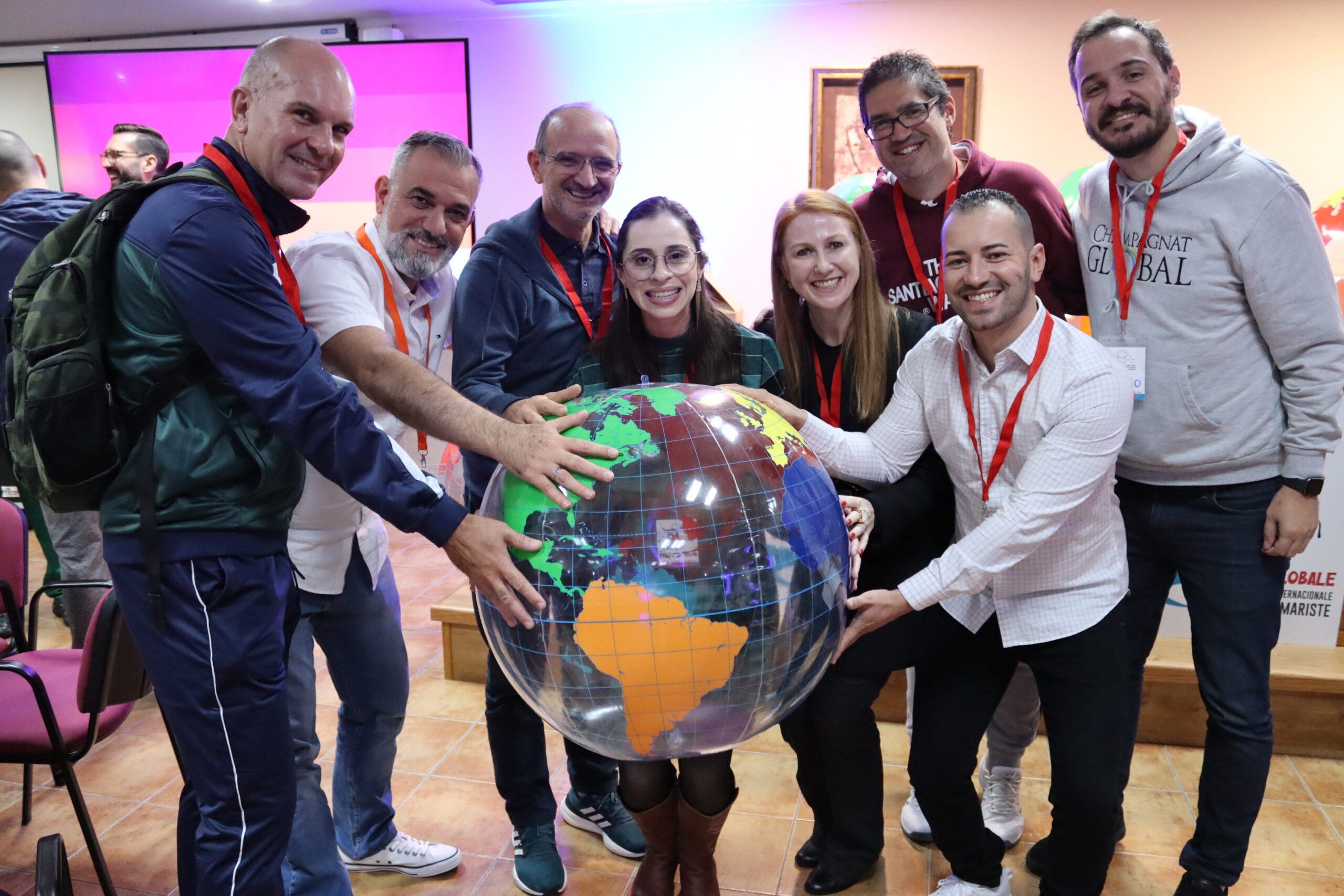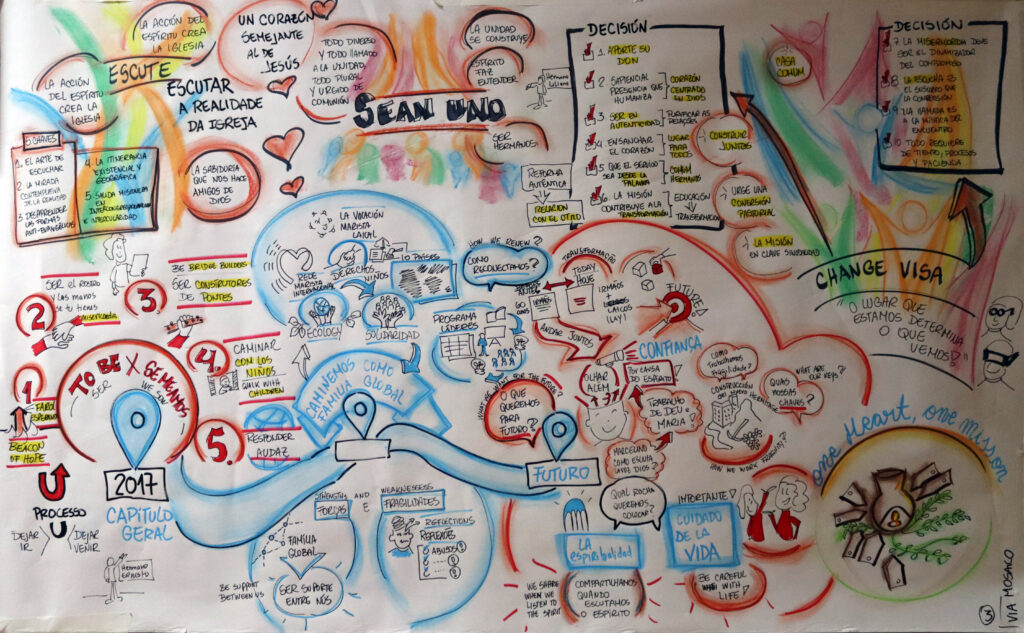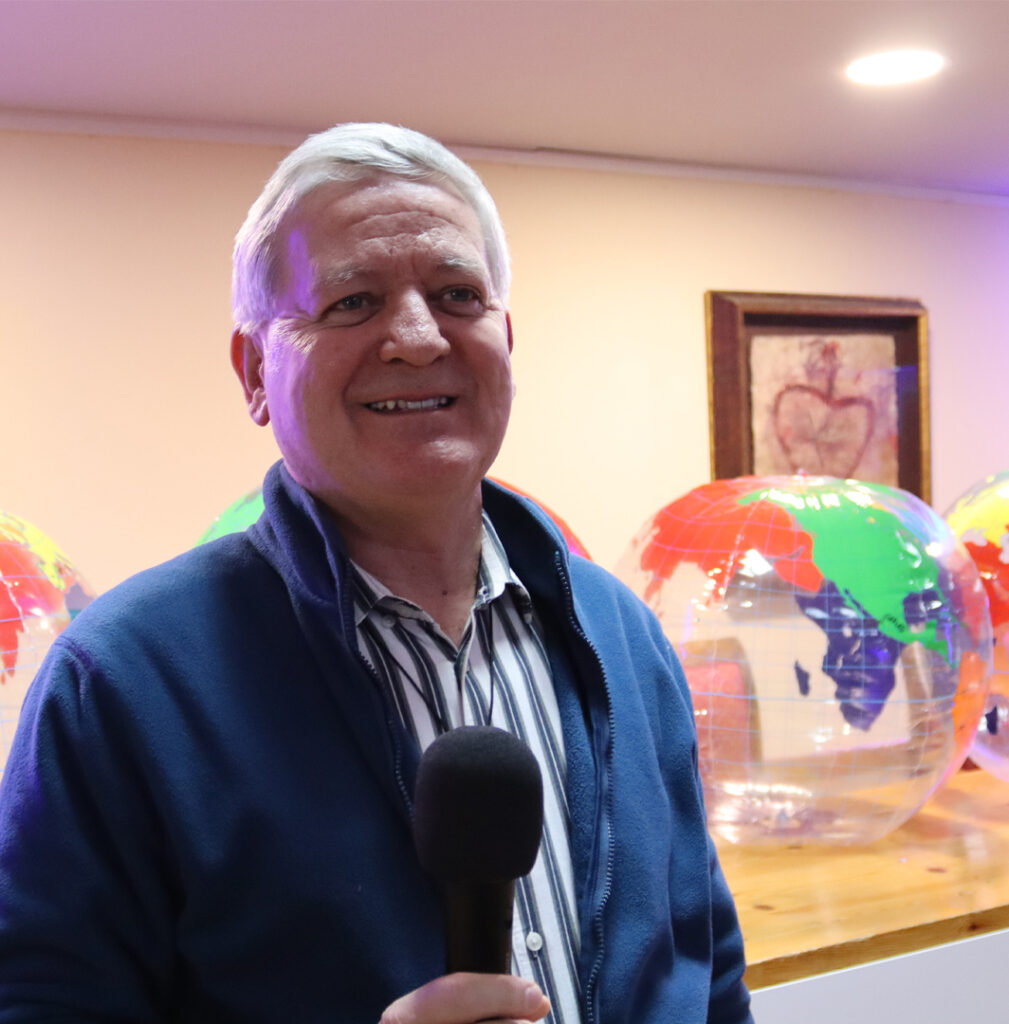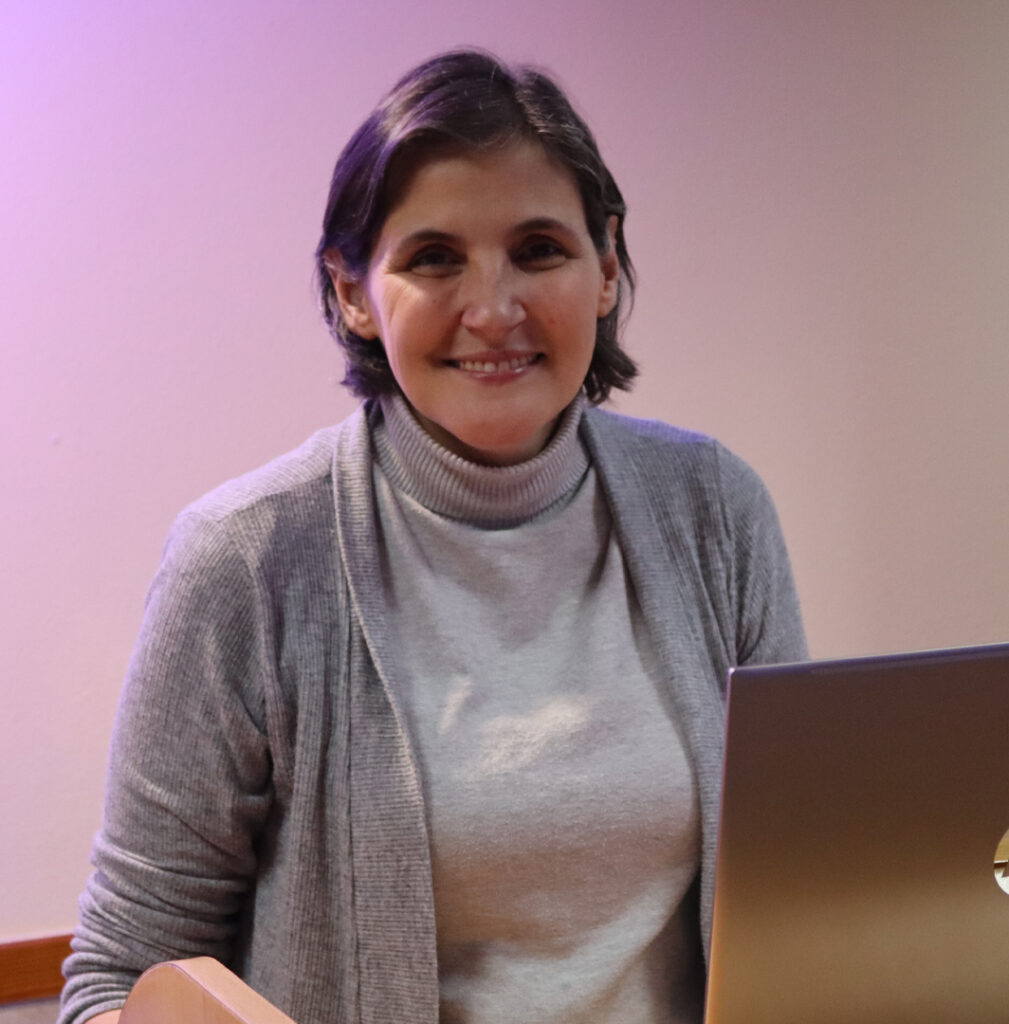
MIMA III, Tuesday: discovering the current reality of the Institute and the Church
Photos | Day’s video | Interviews | Other Info
The second day of the Marist International Mission Assembly had the verb “to discover” as its leitmotiv and sought to explore the context of our lives, both in the Institute and in the Church.
The day began with a prayer led by the Region of Oceania, which proposed a reflection on “the slow work of God”. The day’s work was then coordinated by Brothers Niño Pizzarro, Assistant Director of the Secretariat for Education and Evangelisation, and Ángel Diego García Otaola, Director of the Secretariat for Solidarity. After recapping the first day of the assembly, the floor was given to Br. Ernesto Sánchez, Superior General.
Br. Ernesto: We are a global family
Br Ernesto’s talk was entitled “We are a global family”. He reviewed the work done in recent years, especially the orientations given by the last General Chapter, which were incorporated into the Strategic Plan of the current General Government. He then asked the group: “From your experience, what has been of help to you in the Marist Global Family? What challenges are you facing?
The Superior General also took advantage of the context of the celebration of the bicentenary of the building of the Hermitage to reflect on the foundations of the Institute, “the firmness of the rock”, and Champagnat’s courage to look beyond. St Marcellin was able to do this by “listening to and following the intuitions that the Spirit was prompting in his heart. And, at the same time, by trusting that all that was happening and being accomplished was not his own work, but the work of God and of Mary”. The recollection of the construction of Notre-Dame de l’Hermitage will be the backdrop of the next General Chapter. In view of this, Br. Ernesto asked the participants to reflect on what firm rock I should personally stand on and what foundations we need as a Global Marist Family. He also asked: What does it mean for us today to replicate the construction experience of Marcellin and the first brothers? And he recalled two aspects that he had already suggested in the Circular “Homes of Light”: spirituality, the fundamental pillar left to us by Champagnat, and caring for life.
Sister Liliana: sinodality, religious life, and prophecy
The second presentation of the morning was given by Sister Liliana Franco, president of CLAR, who helped the group to “listen to the current reality of the Church”. Her presentation was entitled “Challenges for the Church today: synodality, religious life and prophecy”. In this task, she highlighted 5 keys that she considers essential: the art of listening, looking at reality contemplatively, unlearning anti-gospel practices, moving into new existential and geographical situations, missionary outreach with an inter-congregational and intercultural approach.
Sister Liliana finally said that “in the light of our current ecclesial reality, the Church has some decisions to make”. And she pointed out that the necessary decisions and attitudes are:
- To allow people to bring their individual gifts as inspired by the Spirit.
- With hearts centred on God, to be a wisdom presence that fosters greater humanity.
- To be genuine, to be with others, and to allow grace to flow in freedom.
- To widen our hearts until there is room for everybody.
- That our ministry be based on the Word of God that gives it meaning and structure and opens up prospects for renewal and commitment.
- That our mission promotes transformation.
- That mercy be the driving force of our commitment.
- That listening be the soft voice that leads to conversion.
- That the call be to foster a culture, a mystique of encounter
- That everything takes time, steps and patience.

Appreciative Inquiry, Theory-U and Conversations in the Spirit
The afternoon’s work began with an explanation of the methodology to be used in the meeting. Marcelo de Moraes Cordeiro, who is leading the strategic planning of the Province of Brazil Sul-Amazônia, was the facilitator. He explained to the participants the three methodological approaches that will be used during their days of work together:
- Appreciative Inquiry: is an approach to organisational change that invites us to explore the riches of our past and present, acknowledging the practices and relationships that motivate us. Then, instead of diagnosing and correcting problems, the approach encourages the members of the organisation to collectively imagine and build a desirable and inspiring future. It follows a four-phase process: Discovery, Dream, Design and Delivery. By adopting this approach, we strengthen our identity, promote a positive and inspiring organisational culture, and advance our mission of transforming lives through education and solidarity.
- Theory U: is based on a process of deep personal learning and change involving three main dimensions: open mind, open heart and open will.
- “Conversations in the Spirit” is the methodology developed and implemented along the journey of the Synod and presents a type of dialogue in which the Spirit can blow freely and encourage meaningful and transformative conversations.
The second part of the afternoon was devoted to revisiting the two reflections made in the morning. First of all, the participants reflected personally, putting their heart, mind and will into it, helped by some questions:
- What feelings did I experience when listening to these talks (heart)?
- What reflections aroused or stimulated me (mind)?
- What do you have a sense of opening up as possible Marist mission in the future (will)?
After the personal reflection, each group expressed its own conclusions, which were then shared in the plenary session.
Marian prayer concluded the day’s work and, after dinner, there was a cultural evening with games, songs and dances organised by the regions of Oceania and Africa.


